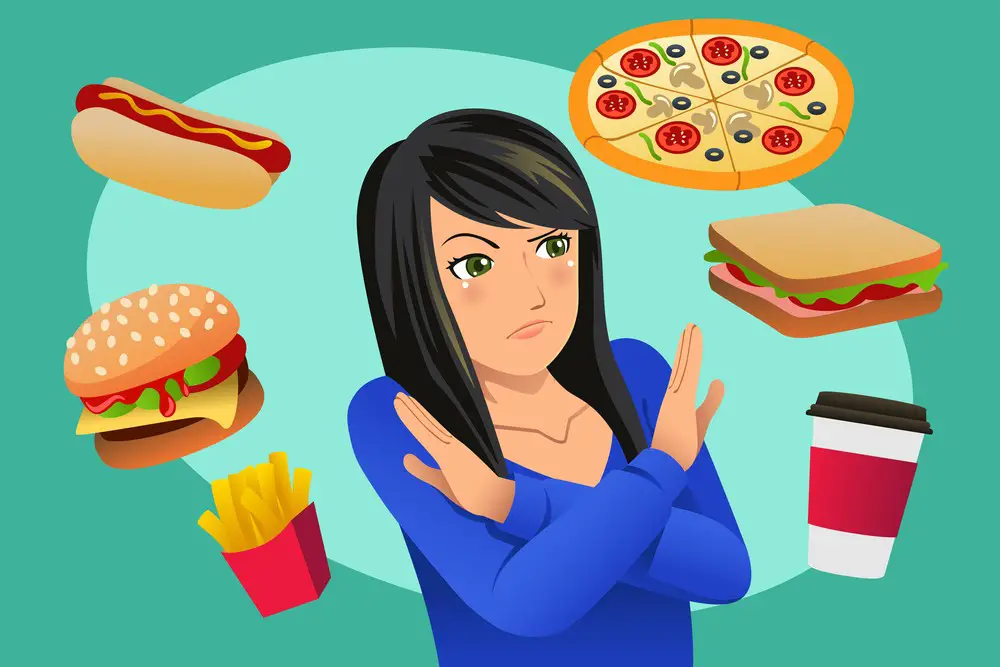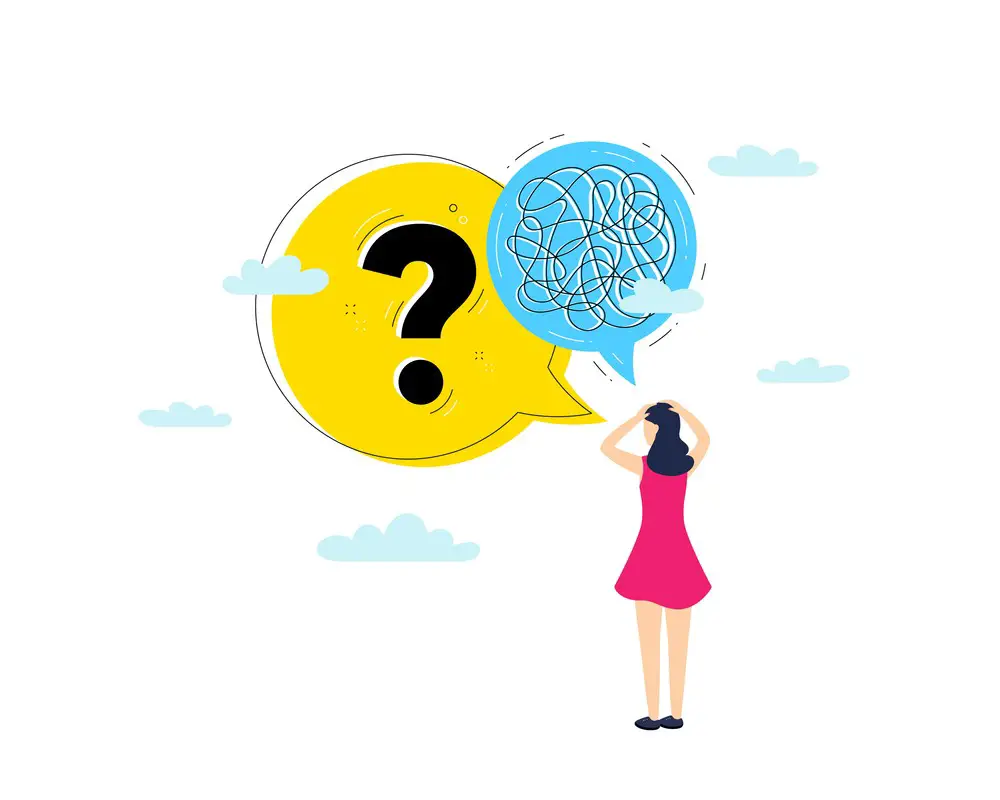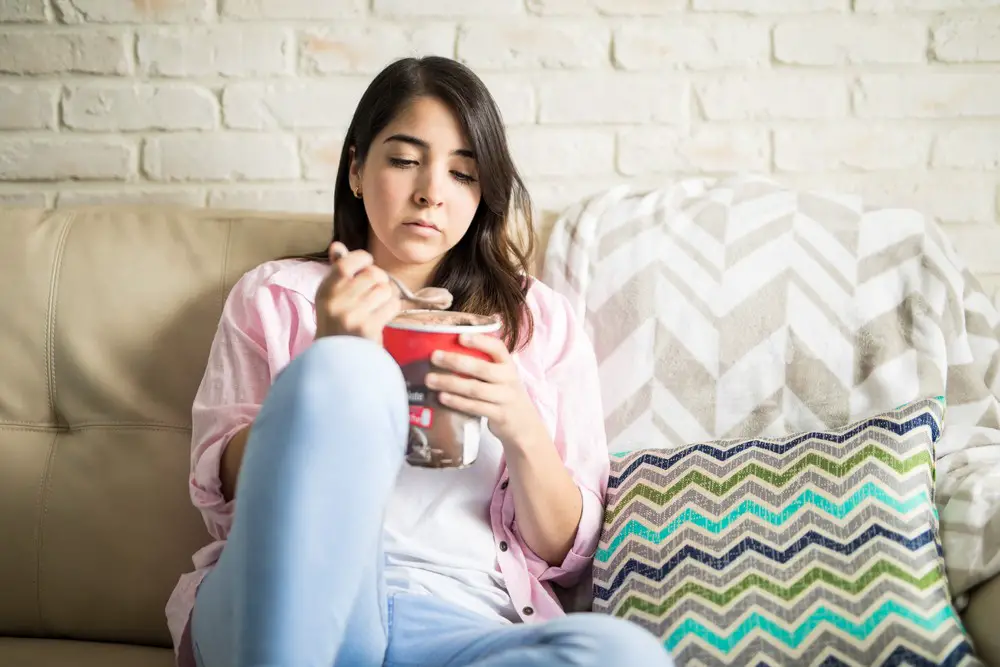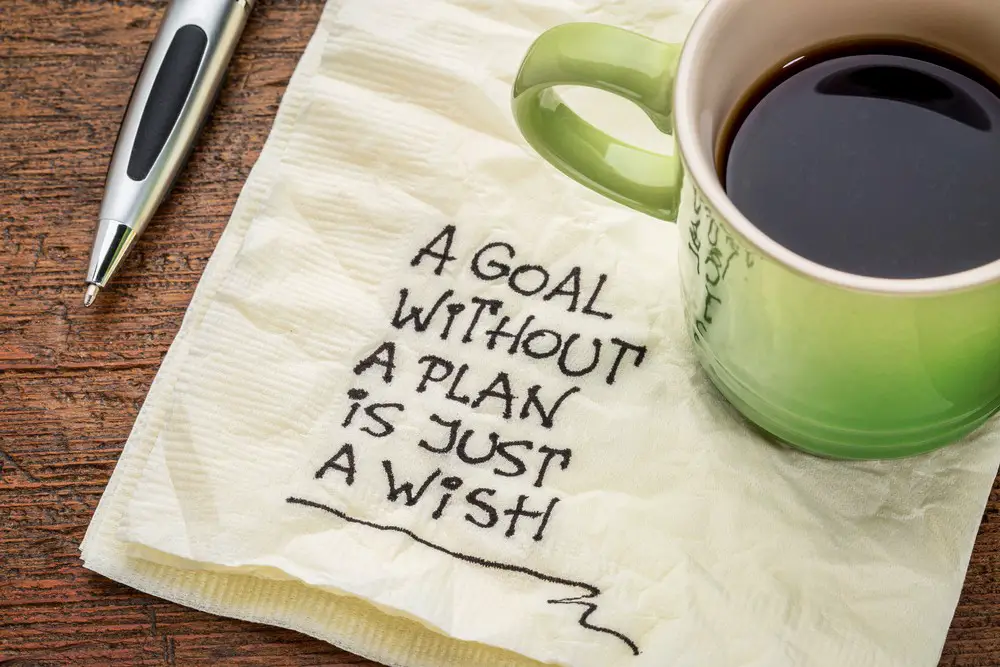As a BetterHelp affiliate, we receive compensation from BetterHelp if you purchase products or services through the links provided
It’s not uncommon to feel a sense of guilt after eating certain foods or indulging in a satisfying meal. Many individuals experience this, leading them to question why they feel guilty after eating and how to overcome it. From diet culture to social media influences, many factors can contribute to these feelings, and it’s essential to understand and address them to build a healthier relationship with food.
One possible explanation behind this guilt could be a misunderstanding of what constitutes food freedom and the role of balance in maintaining a healthy diet. Food guilt often stems from internalized beliefs that certain foods are “bad” or “off-limits”, which creates a negative relationship with food and a sense of shame when those rules are broken. Additionally, the impact of social media on our perceptions of body image, diet, and eating habits cannot be underestimated, as constant exposure to unrealistic standards can fuel self-doubt and guilt.
It’s essential to recognize and address these feelings to break free from the cycle of food guilt and embrace a more intuitive and balanced approach to eating. This starts with acknowledging the reasons behind guilt and shame, developing strategies to cultivate a healthy mindset towards food, and consistently working towards dismantling any unhealthy beliefs and habits related to eating.
Key Takeaways
- Diet culture and social media often influence food guilt, which can create unrealistic expectations of body image and eating habits.
- To overcome food guilt, it’s crucial to understand the importance of balance, consistency, and food freedom in promoting a healthy relationship with food.
- Adopting intuitive and mindful eating strategies can help combat negative feelings of guilt and shame surrounding food consumption.
 Understanding the Concept of Food Guilt
Understanding the Concept of Food Guilt
Food guilt refers to the negative emotions, such as guilt and shame, that you may experience after eating certain foods, usually those considered as unhealthy or indulgent. Feeling guilty after eating is not uncommon, but it can lead to an unhealthy relationship with food and negatively impact your mental well-being.
Why does food guilt happen? Food guilt can stem from various sources. For instance, societal pressures to maintain a particular body image or constant exposure to media messages promoting strict dietary rules may contribute to guilt after eating foods perceived as “bad” or “off-limits.”
Recognize the triggers. Identifying the specific circumstances and emotions that lead to food guilt is essential. These could range from a critical comment from a friend or family member to the desire to adhere to a strict diet plan. Awareness of your triggers can help you cope better with the guilt and shame associated with eating.
Separate emotions from food. Food is simply a source of nutrition and energy for your body. Reminding yourself of this fact can help you dissociate your emotions from food. Moreover, start recognizing that food isn’t inherently good or bad – a balanced eating approach allows occasional indulgences without guilt.
Guilt vs. Mindfulness. Instead of feeling guilty, try adopting a mindful eating approach. This means paying attention to your physical hunger cues and eating without distractions. Additionally, savor and enjoy each bite you take while honoring your hunger and fullness signals.
Key takeaway: Remember that food nourishes your body, and guilt and shame are unproductive emotions to associate with it. Recognizing your triggers, separating emotions from food, and practicing mindfulness can help you overcome food guilt and build a healthy relationship with eating.

The Role of Diet Culture and Social Media
You might feel guilty after eating due to diet culture and social media influence. Diet culture promotes the idea that certain foods are ‘good’ or ‘bad,’ leading you to feel shame when consuming foods deemed ‘unhealthy.’ It also encourages restrictive eating and focuses on appearance over well-being.
Nowadays, social media has amplified diet culture’s effects. Through platforms like Instagram or TikTok, people often showcase their seemingly perfect lifestyles, which can feature strict diets or intense workout routines. When you diverge from a perceived ideal, comparing yourself to others can lead to guilt. Here’s how diet culture and social media impact your emotions around food:
- Unrealistic standards: It’s essential to acknowledge that what you see on social media doesn’t always reflect someone’s reality. Many influencers have carefully curated feeds, and it’s easy to feel pressured to live up to these ideals, including their specific diets or exercise habits.
- Misinformation: Social media can be a breeding ground for misleading information about diets and nutrition. Fad diets and “quick fix” solutions become popular, leading to confusion and guilt when you fail to adhere to these unrealistic standards.
- Comparison trap: It’s hard not to compare yourself to peers or influencers on social media, who may seem like they have it all together. This comparison can lead to inadequacy and guilt, mainly when they showcase their strict diets or weight loss transformations.
How can you combat the negative impact of diet culture and social media? Consider these tips:
- Consult a dietitian: A professional can help you create a personalized, balanced approach to eating that promotes nourishment and well-being—free from unnecessary guilt.
- Set realistic expectations: Remember that nobody is perfect, and it’s okay to indulge sometimes. Aim for balance and moderation, key ingredients for a sustainable and healthy lifestyle.
- Be critical of sources: Avoid blindly following dietary advice from influencers who aren’t nutrition experts. Educate yourself on reliable sources of information and avoid falling prey to fad diets.
- Limit exposure: If certain social media accounts or content trigger feelings of guilt or comparison, consider unfollowing or limiting your exposure.
Key takeaway: Diet culture and social media can contribute to feeling guilty after eating, but recognizing their influence and making mindful choices can help you foster a healthier relationship with food.
Unpacking the Psychology behind Guilty Feelings after Eating
Feeling guilty after eating is a common psychological issue that many people face. This emotional reaction involves numerous factors related to mental health, self-judgment, and even compulsive behaviors. Let’s dive deeper into some psychological aspects contributing to these feelings.
Your Mental Health and Self-Judgment
Your mental health plays a significant role in how you perceive and experience your eating habits. Elements such as anxiety, self-doubt, or low self-esteem might increase the chances that you will feel guilty or ashamed after indulging in certain foods. In this situation, reflection and mindfulness can help you understand your emotions better.
By practicing mindfulness, you can become aware of the thoughts, sensations, and emotions associated with eating. Instead of defaulting to judgment, you might approach your relationship with food with curiosity, which can lead to positive changes without guilt.

Regret and Compulsive Eating
Another factor that may contribute to guilty feelings after eating is regret. A sense of regret may follow if you indulge in food you perceive as “bad” or unhealthy. This reaction might lead you to compulsive eating to cope with negative emotions.
Understanding the underlying reasons for these behaviors and developing healthier coping mechanisms can significantly reduce feelings of guilt and regret. Incorporating self-compassion and acceptance can also make a world of difference.
As a key takeaway, working on your mental health, embracing mindfulness, and addressing the feelings of regret attached to compulsive eating can help alleviate the guilt you experience after eating. Remember to be patient with yourself as you navigate these complex emotions and behaviors toward a healthier relationship with food.
Addressing Unhealthy Dieting Habits and Restrictions
Feeling guilty after eating can sometimes stem from unhealthy dieting habits and restrictions you may have enforced upon yourself. Deprivation of specific foods, especially those perceived as “bad” or “off-limits,” can ultimately lead to overeating, followed by guilt.
To shift away from this mindset, consider moving towards a more balanced diet that includes a variety of foods. Emphasize whole, minimally processed foods while allowing yourself to enjoy treats occasionally. You don’t have to always adhere to perfect eating or clean eating.
Strategies to Address Unhealthy Dieting:
- Stop labeling foods as good or bad: Instead, think of foods as part of a larger, balanced diet, understanding that some choices are healthier than others.
- Practice mindfulness when eating: Slow down, savor each bite, and focus on your body’s hunger and satiety cues. This can help prevent overeating and feelings of guilt.
- Shift your focus from restriction to nourishment: Recognize that your body needs a mix of nutrients to maintain optimal health. Emphasizing nourishment instead of deprivation can improve your relationship with food.
Remember, a balanced diet is about incorporating various foods and allowing yourself to enjoy everything in moderation. By changing your perspective on eating and focusing on nourishment, you may find that feelings of guilt fade away.

Moving from Food Rules to Food Freedoms
Do you ever feel guilty after eating some of your favorite foods? You’re not alone. Many people impose food rules on themselves which can lead to feelings of guilt and anxiety around eating. It’s time to break free from these chains and embrace food freedom. Let’s discuss how to start this journey.
First, start by recognizing the food rules in your life. These may include labels like “bad foods” or believing that certain meals are morally wrong. Remember that no food is intrinsically evil once you identify your rules. Accept and acknowledge that every food has a place in a balanced diet.
Next, challenge your beliefs by permitting yourself to eat. People who struggle with guilt surrounding food often have created strict “dos” and “don’ts. Allowing yourself to enjoy your favorite foods without feeling remorse is crucial. This approach will enable you to break free from rigid eating patterns and develop a healthier relationship with food.
Here are some tips to help you on your journey:
- Reframe your thoughts: Change the way you think about food. Instead of labeling a meal as “good” or “bad,” focus on the pleasure it brings and its ability to nourish your body.
- Practice mindful eating: Savor each bite, chew slowly, and fully appreciate the flavors and textures of your food.
- Find balance: Allow yourself to indulge in your favorite foods while maintaining a diet that provides nutrients for your health and well-being.
Moving from a mindset of food rules to food freedom may take some time and practice. Be patient and remember that cultivating a healthier relationship with food is an ongoing process. By taking these steps, you can loosen the grip of guilt and enjoy the pleasure of eating, free from restrictions.
The Importance of Balance and Consistency in Healthy Eating
Feeling guilty after eating might stem from an imbalance in your diet and inconsistent healthy eating habits. To overcome this guilt, it’s essential to maintain a balanced and consistent approach to nourishing your body.
Here’s why balance matters: Pursuing a balanced diet means permitting yourself to enjoy a variety of foods. Remember, no single food can provide all the nutrients your body needs, so eating a mix of natural, wholesome foods is crucial. Instead of depriving yourself of your favorite treats, incorporate them in moderation. This practice helps prevent overindulgence while minimizing feelings of guilt.
Consistency is key: Healthy eating isn’t just about the occasional nutritious meal; it’s about maintaining good eating habits over time. To achieve this, consider the following tips:
- Establish a routine, including regular mealtimes and incorporating fruits, vegetables, whole grains, lean proteins, and healthy fats into your daily meals.
- Listen to your body and eat when you’re hungry. Avoid skipping meals, which can lead to overeating later.
- To keep things exciting, experiment with new healthy recipes and try different cuisines, focusing on nourishing ingredients.
By maintaining balance and consistency in your healthy eating journey, you’ll naturally begin to feel better about your food choices, reducing that sense of guilt and fostering a positive relationship with food.
Key takeaway: To reduce feelings of guilt after eating, incorporate balance and consistency into your healthy eating habits. This approach allows occasional indulgences without sacrificing overall nourishment and encourages a positive relationship with food.
Overcoming Food Guilt through Intuitive and Mindful Eating
Feeling guilty after eating can be a draining and unpleasant experience. You can overcome this food guilt by embracing intuitive and mindful eating practices. These approaches encourage you to listen to your body, enjoy your meals, and promote a healthy relationship with food.
Begin your journey to overcoming food guilt by practicing intuitive eating. This means eating based on your internal hunger and fullness cues. Keep these tips in mind as you cultivate intuitive eating habits:
- Pay attention to your body. Notice when you’re truly hungry and when you’re satisfied.
- Permit yourself to eat a wide variety of foods without judgment.
- Remove moral labels from food. No food is inherently “good” or “bad.”
- Practice self-compassion and patience, as intuitive eating is a continuous learning process.
At the same time, embrace mindful eating by focusing on the present moment while eating. This will help you appreciate the food’s taste, texture, and aroma, making the experience more pleasurable. Use these strategies to practice mindful eating:
- Eat slowly and savor each bite, noticing the flavors and textures.
- Remove distractions like television or social media while eating.
- Allow yourself to feel satisfied, not overly full or stuffed.
- Listen to your body’s cues and honor them by eating when you’re truly hungry and stopping when you’re full.
Don’t underestimate the power of curiosity. Explore different cuisines and flavors to keep mealtime enjoyable and satisfying. This way, you’ll learn more about the foods that genuinely please you.
By practicing intuitive and mindful eating, you’ll develop a healthier relationship with food, focusing on satisfaction and pleasure rather than guilt. Remember, giving yourself time and patience during this process is essential. As you progress, you’ll find that you can stop feeling guilty after eating and instead appreciate the nourishment and enjoyment that food provides.

Navigating Emotional Eating and Building a Better Relationship with Food
Emotional eating can happen when you feel stressed, sad, or bored. Recognizing this pattern is essential to begin nurturing a healthier relationship with food. Here, we’ll explore helpful strategies to support you on this journey.
*First and foremost, reflect on your triggers by identifying situations or emotions that cause you to eat. Journaling your experiences can be a helpful way to discover patterns and tackle them head-on. Not judging yourself during this process is crucial – you’re gaining awareness, not criticism.
*Mindfulness practices also play a key role in combatting emotional eating. Adopting a conscious mindset will make you more in tune with your body’s hunger and satisfaction signals. Start by eating slowly and savoring each bite, strengthening your connection to your body.
*To build a healthy relationship with food, focus on nutrient-rich meals and snacks that nourish and energize your body. Aim for balance and variety while cutting back on processed foods and sugar. Remember, it is not about deprivation; it’s about making smarter choices that make you feel good.
*Establish a support system to help you navigate this journey. Whether it’s a friend, family member, or professional, having someone to share your experiences and challenges with can provide invaluable insights and encouragement. Don’t hesitate to seek help if you struggle with body image or suspect an eating disorder may be at play.
*Ultimately, it’s essential to make self-care and self-compassion your cornerstones. Engaging in regular physical activity, practicing relaxation techniques, and prioritizing sleep can all help reduce stress and promote emotional well-being.
Key Takeaway: Identifying your triggers, adopting mindfulness practices, maintaining a balanced diet, and prioritizing self-care are valuable tools in navigating emotional eating and building a better relationship with food. Reach out to your support system for guidance and encouragement throughout the process.

Strategies to Combat Unhealthy Guilt and Shame After Eating
Feeling guilty or shameful after eating is quite common, but managing these emotions to maintain a healthy relationship with food is crucial. Here are some helpful strategies:
1. Challenge your perfectionism: Understand that no one is perfect, and it’s expected to indulge in your favorite treats occasionally. Don’t let an all-or-nothing mindset lead you to guilt and remorse. Permit yourself to enjoy food in moderation, and avoid setting unrealistic expectations for your eating habits.
2. Reframe negative thoughts: Instead of focusing on what you perceive as wrong, redirect your attention to the positives. For example, if you feel guilty for indulging in a dessert, remember the nutritious and balanced meals you’ve enjoyed throughout the day. Reframing allows you to accept that having treats’s okay while prioritizing overall health.
3. Practice mindfulness: Eating mindfully means being present and aware while you eat. Savor each bite, pay attention to your body’s hunger and fullness cues, and listen to your body’s needs. Mindful eating can help reduce guilt and stress while enhancing satisfaction and enjoyment.
4. Create a support system: Surround yourself with people who share your goals and aspirations for a healthy lifestyle. This could be friends, family, or even social media groups that positively reinforce mindful habits. Sharing your journey can help alleviate feelings of guilt and shame.
5. Seek professional help if needed: If your negative emotions related to food consumption become overwhelming, consider seeking help from a professional. A licensed therapist or nutritionist can provide guidance, support, and practical tools to help you overcome these unhealthy feelings.
By implementing these strategies, you’ll start to rewire your relationship with food and combat the unhealthy guilt and shame often accompanying eating. Remember, the key is balance, moderation, and self-compassion.

Recognizing the Need for a Change: When Is It Time to Address Food Guilt?
Food guilt is a pesky emotional burden that can sneak into your daily life without you even noticing. But when should you actually hit pause and deal with it? Consider seeking help or making changes when:
- Frequent Guilt: The feeling persists and hampers your ability to enjoy meals.
- Impact on Social Life: You’re avoiding social events involving food or feeling overly anxious when eating in public.
- Negative Self-Talk: You’re increasingly harsh on yourself, with internal dialogues focused on shame and blame.
- Physical Consequences: You’re experiencing symptoms like stress, stomachaches, or changes in eating habits due to guilt.
Addressing these signs early can help prevent the guilt from escalating into more complex emotional or eating disorders.
 Unpacking Food Guilt: The Goals
Unpacking Food Guilt: The Goals
Turning the page on food guilt is easier said than done. Setting specific, achievable goals can make all the difference. Here are a few objectives you might consider:
- Redefine “Good” and “Bad” Foods: Aim to eliminate labeling foods in a way that contributes to guilt.
- Practice Mindfulness: Make it a goal to be fully present during meals, savoring each bite.
- Cultivate Balance: Strive for a diverse, well-rounded diet that includes all food groups, free from the limitations of “food rules.”
- Embrace Self-Compassion: Learn to be kinder to yourself when you do indulge, understanding that it’s a natural part of a balanced lifestyle.
Keeping Tabs: How to Know You’re Making Progress
Moving away from food guilt is often a gradual process. Here’s how to monitor your progress:
- Reflect on Emotional State: Are you starting to feel more at ease during and after meals?
- Journaling: Keep a food and feelings diary to observe any shifts in your mindset.
- Ask for Feedback: Talk to close friends or family and ask if they’ve noticed a change in your attitude toward food.
- Revisit Goals: Regularly review your objectives to see if you’re on the right track or need adjustments.
From Guilt to Food Freedom: Building a Positive Relationship with Eating
You deserve to have a joyous, guilt-free relationship with food. For a sustainable change, you might want to:
- Educate Yourself: Understand the nutritional aspects of different foods to make informed choices without guilt.
- Limit Exposure: Cut down on social media accounts or content that propagates unrealistic body or food standards.
- Celebrate Small Wins: Took a mindful meal? Enjoyed a treat without guilt? Celebrate these moments—they’re signs you’re on the right path.
- Seek Professional Help: Sometimes, the emotional baggage around food requires more than self-help. Don’t hesitate to consult a nutritionist or psychologist.
Living free from food guilt enhances your meals and overall quality of life. So why not start your journey to food freedom today?
Frequently Asked Questions

Why does eating sometimes cause guilt?
Eating can sometimes cause guilt because you might feel like you’ve indulged more than you should have or consumed foods that don’t align with your health goals. This guilt often stems from societal pressures to maintain a particular body image or personal expectations to follow a specific diet.
Key takeaway: Guilt can arise from societal pressures and personal expectations regarding food choices and body image.
What are the reasons for feeling guilty post-meal?
There can be various reasons for feeling guilty after eating, such as:
- Overeating, resulting in physical discomfort
- Consuming unhealthy or high-calorie foods
- Eating something that doesn’t align with your dietary goals or restrictions
- Emotional eating or using food to cope with stress
Key takeaway: Guilt may emerge from overeating, unhealthy food choices, violating dietary goals, or emotional eating.
How can one overcome guilt associated with eating?
You can overcome guilt associated with eating by:
- Challenging negative thought patterns and reframing your perspective on food
- Practicing mindful eating so you’re more conscious of your body’s needs and hunger signals
- Embracing a balanced diet with moderation rather than an all-or-nothing approach
- Addressing emotional eating patterns and seeking healthier coping mechanisms
- Avoiding comparison with others and nurturing a positive relationship with your body
Key takeaway: Overcoming guilt involves a combination of mindset shifts, mindful eating, embracing balance, addressing emotional eating, and fostering self-acceptance.
What are the psychological effects of experiencing food guilt?
The psychological effects of food guilt can include:
- Negative self-image
- Anxiety and stress over food choices
- Perpetuation of disordered eating behaviors
- Decreased enjoyment of food and social situations involving food
- Feeling out of control around food
Key takeaway: Food guilt can negatively impact mental well-being, contribute to disordered eating, and reduce enjoyment of food and social experiences.
How does emotional eating lead to guilt?
Emotional eating refers to using food as a coping mechanism to deal with or escape emotional distress. This can lead to feelings of guilt because:
- It may involve overeating or consuming unhealthy foods
- You might feel a lack of control over your eating habits
- It doesn’t address the root cause of the emotional issue, causing further distress
Key takeaway: Emotional eating can result in guilt due to overindulgence, loss of control, and an inability to cope with emotional issues effectively.
What can be done to prevent food-related guilt?
To prevent food-related guilt, consider the following strategies:
- Set realistic and flexible eating goals that prioritize health and well-being
- Develop a balanced relationship with food, understanding that it’s okay to indulge occasionally
- Practice mindful eating and listen to your body’s needs and hunger signals
- Address emotional eating and seek alternative coping techniques
- Surround yourself with positive messages and influences regarding health and body image
Key takeaway: Preventing food-related guilt involves setting flexible goals, cultivating a balanced relationship with food, practicing mindfulness, addressing emotional eating, and fostering a positive environment around food and body image.
About Jacob Maslow
After surviving the traumatizing events of 9/11, I took it upon myself to heal through helping others. I’m the primary caregiver of my children and understand from first-hand experience the lonely paths you have to walk as a partner and parent when leaving an unhealthy relationship.
We’re all echoing in a dark space that doesn’t have to be this empty, and that’s been my mission since finding solace and recovery in therapy: To help comfort others who are still in shock and at the prime of their struggle.
I came across BetterHelp after searching for this type of community. I wanted to belong to a body of proactive therapists and supportive therapy veterans that allowed me to see other sides of the story.
It was unconventional, and that’s what attracted me most. During my most challenging times, when my ex-wife completely cut me off from my children, I found comfort and clarity through BetterHelp.
Instead of being chained to a strict therapist recommendation, I was in charge of who I felt understood my struggle most. That allowed me to find my true peace, as I was reunited with those who read behind my words and had first-hand experience with my trauma.
Recovery is a choice; with BetterHelp, that choice will be a few clicks away. You can join their couples-oriented platform, Regain.us, for those stuck with family estrangement and toxic relationship patterns.
- 7 Ideas to Help You Relax and Unwind on a Family Vacation - April 27, 2025
- How Having Cybersecurity Protection Helps You Relax - April 25, 2025
- 8 Reasons Why Spending Time Outside Calms You Down - April 25, 2025
This site contains affiliate links to products. We will receive a commission for purchases made through these links.


 Understanding the Concept of Food Guilt
Understanding the Concept of Food Guilt Unpacking Food Guilt: The Goals
Unpacking Food Guilt: The Goals
